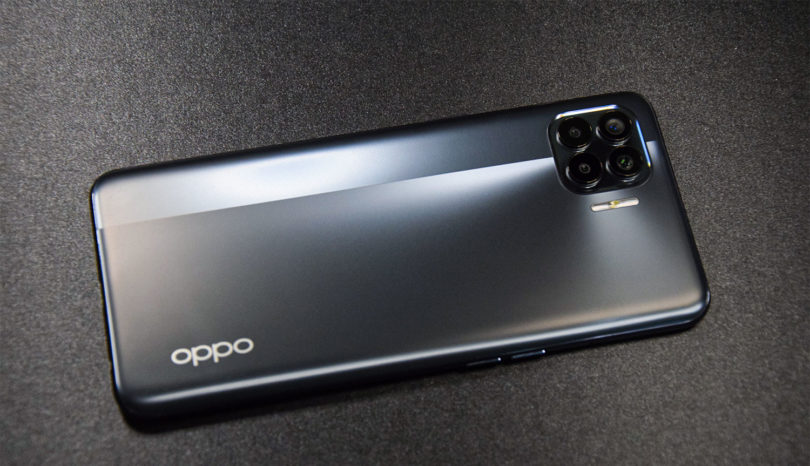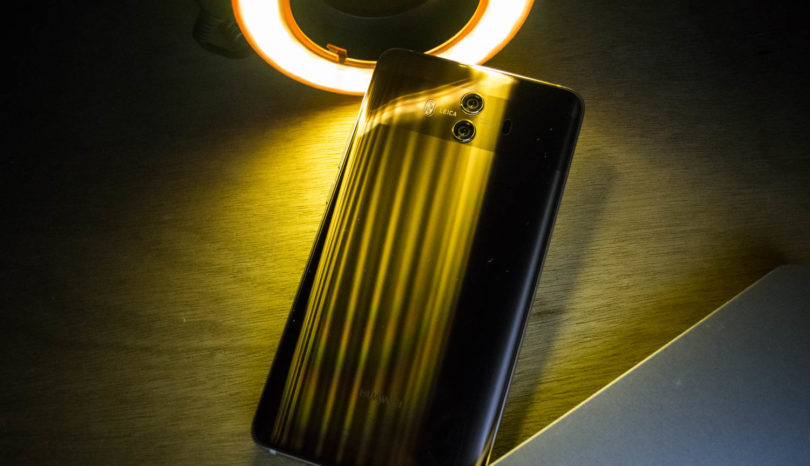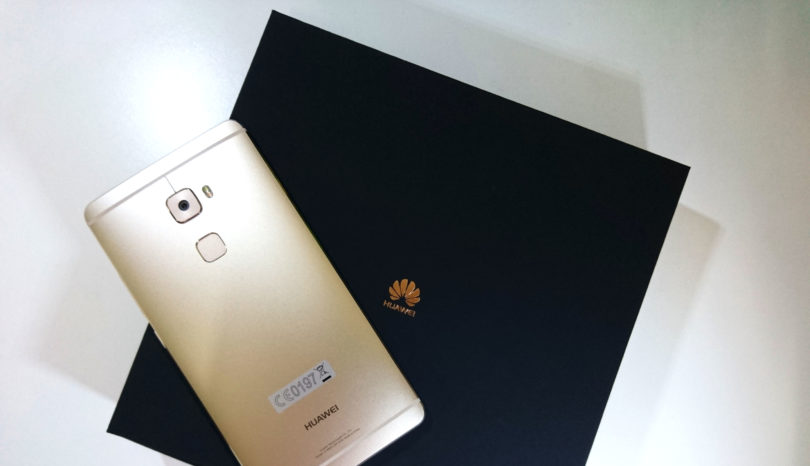The Samsung Galaxy S22+ was announced a couple of months ago alongside the S22 and S22 Ultra, which is the middle child in the S22 series, at least for now. I’ve already had my first look at the phone here, which should be the phone that most people will be getting instead of the Ultra variant. I’ve been using the phone for a few weeks and here comes the full review.
Samsung Galaxy S22+ Specs
- 6.6-inch Full HD+ Dynamic AMOLED 2X display (48Hz-120Hz)
- Qualcomm Snapdragon 8 Gen 1 processor (Malaysia) or Exynos 2200 processor
- Cameras:
- 12MP ultra-wide + 50MP main with OIS + 10MP 3x telephoto with OIS
- 10MP front camera
- 4,500mAh battery with 45W wired Super Fast Charging 2.0
- Wi-Fi 6E, UWB, Bluetooth 5.2
- IP68 water and dust resistance
- Colors: Phantom White, Pink Gold, Phantom Black, Green
- One UI 4.1 based on Android 12
- Pricing:
- 8GB RAM + 128GB storage: RM4,099
- 8GB RAM + 256GB storage: RM4,299
Similar Design
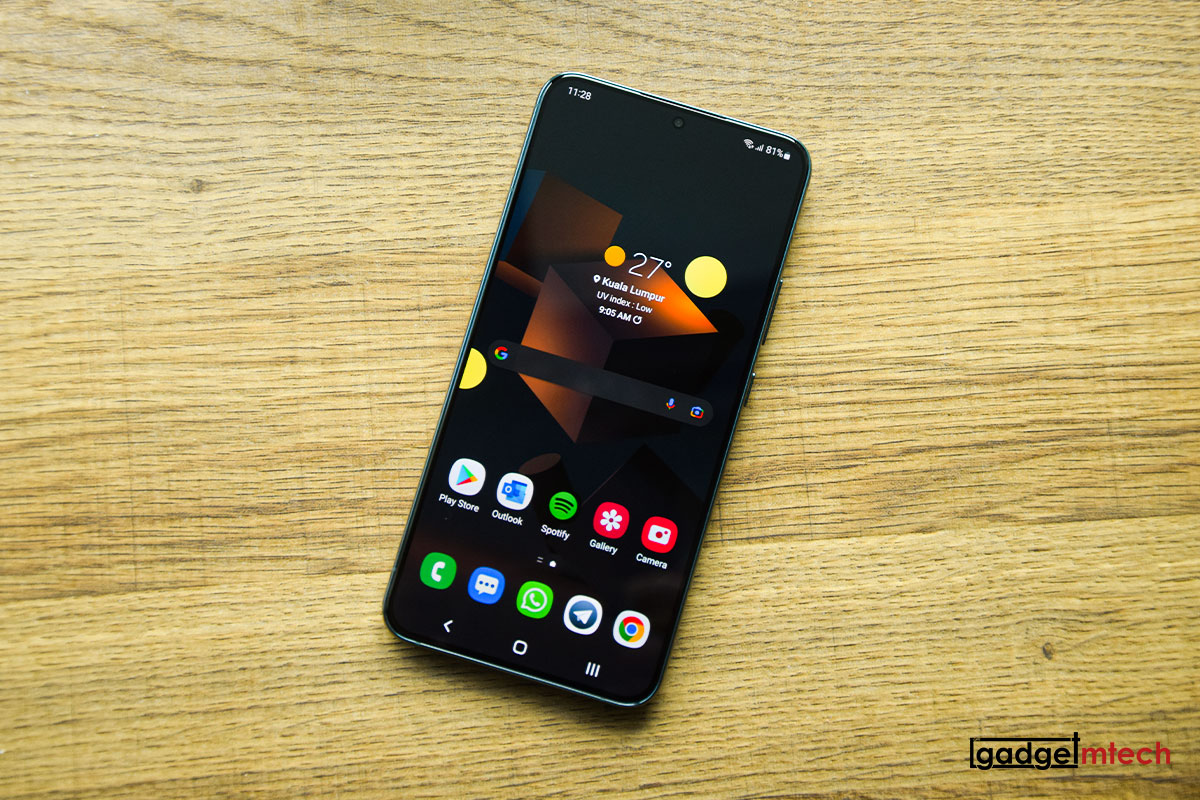
The Samsung Galaxy S22+ looks pretty much like its predecessor, not a bad thing at all. The front is a 6.6-inch Full HD+ Dynamic AMOLED 2X display, which is slightly smaller than last year’s S21+. It still has the same flat display with a hole-punch selfie camera and there’s also an in-display ultrasonic fingerprint sensor that is pretty responsive.
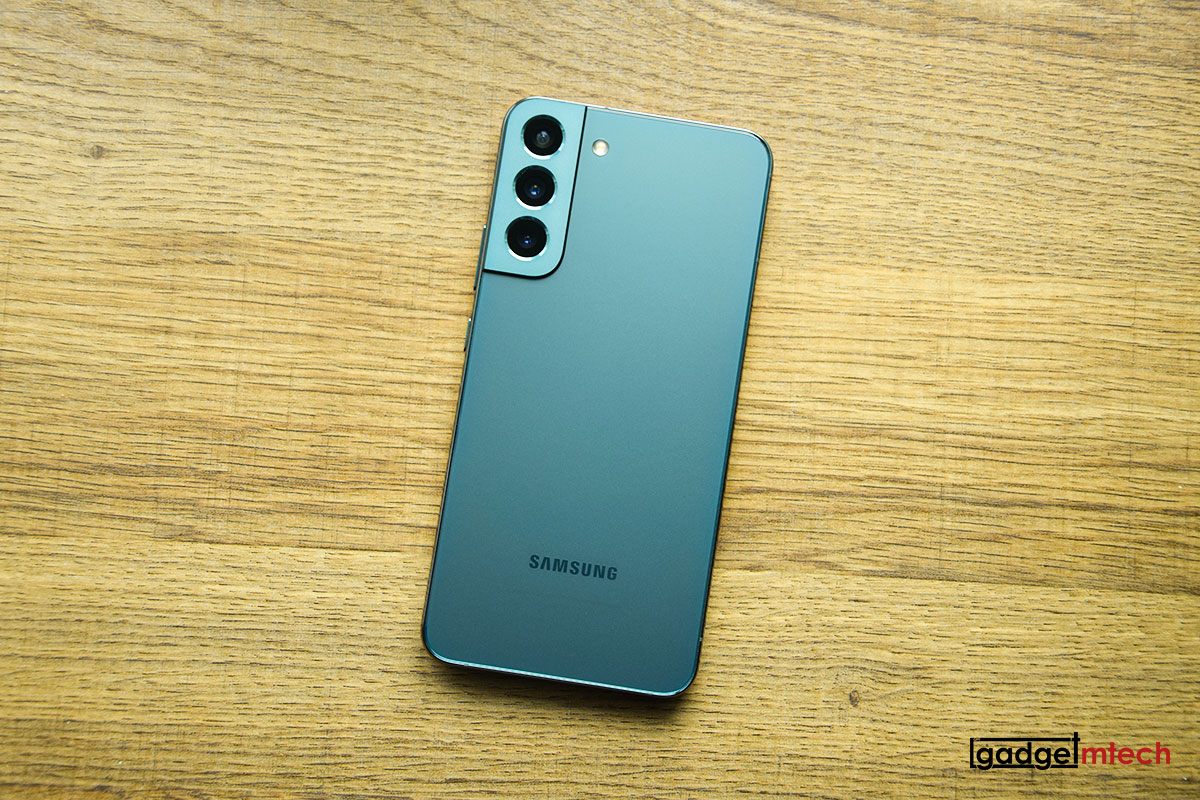
The back of the phone is a Corning Gorilla Glass Victus+ and the chassis is now protected by the more durable armor aluminum. Despite having a more durable build material, the Galaxy S22+ is slightly lighter than its predecessor.
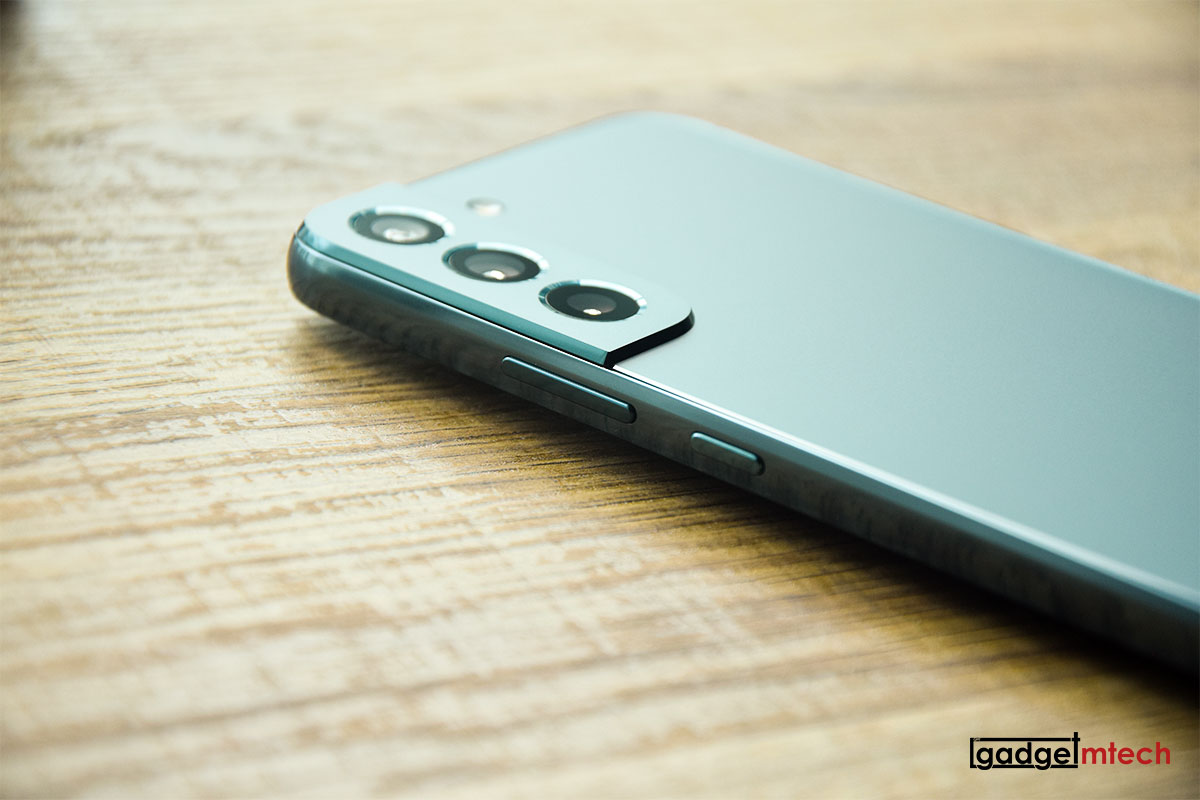
Samsung has removed the two-tone design from the S21 series, but it still has the same Contour Cut Camera housing that blends the camera bump into the frame design.
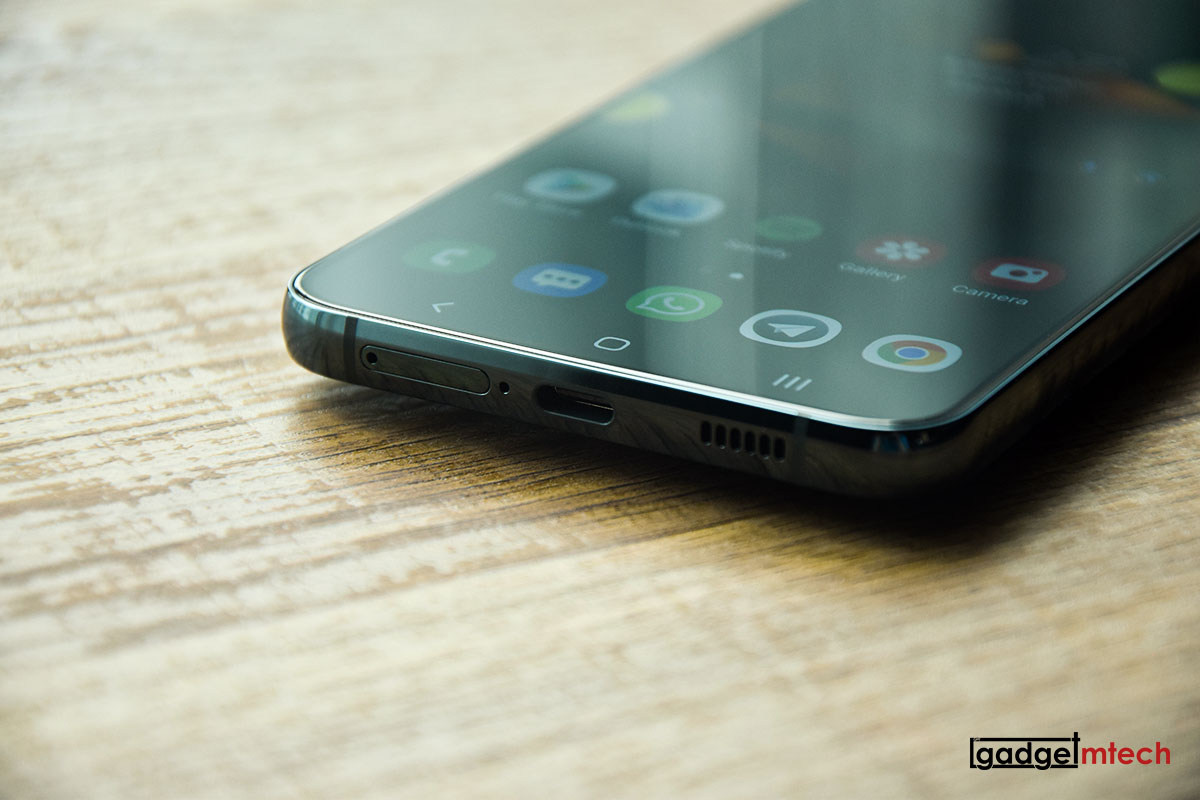
The buttons and USB-C port are still located in the same positions. The phone also has stereo speakers, one at the bottom next to the USB-C port and another one that doubles up as an earpiece.
Just like the Galaxy S22 Ultra, Samsung has replaced the z-axis vibration motor with an x-axis motor that generally improves the haptic feedback but reduces the vibration intensity at the same time. It now has a softer vibration intensity, sometimes I didn’t even notice it when I place the phone on the table or in my pocket.
Impressive Display
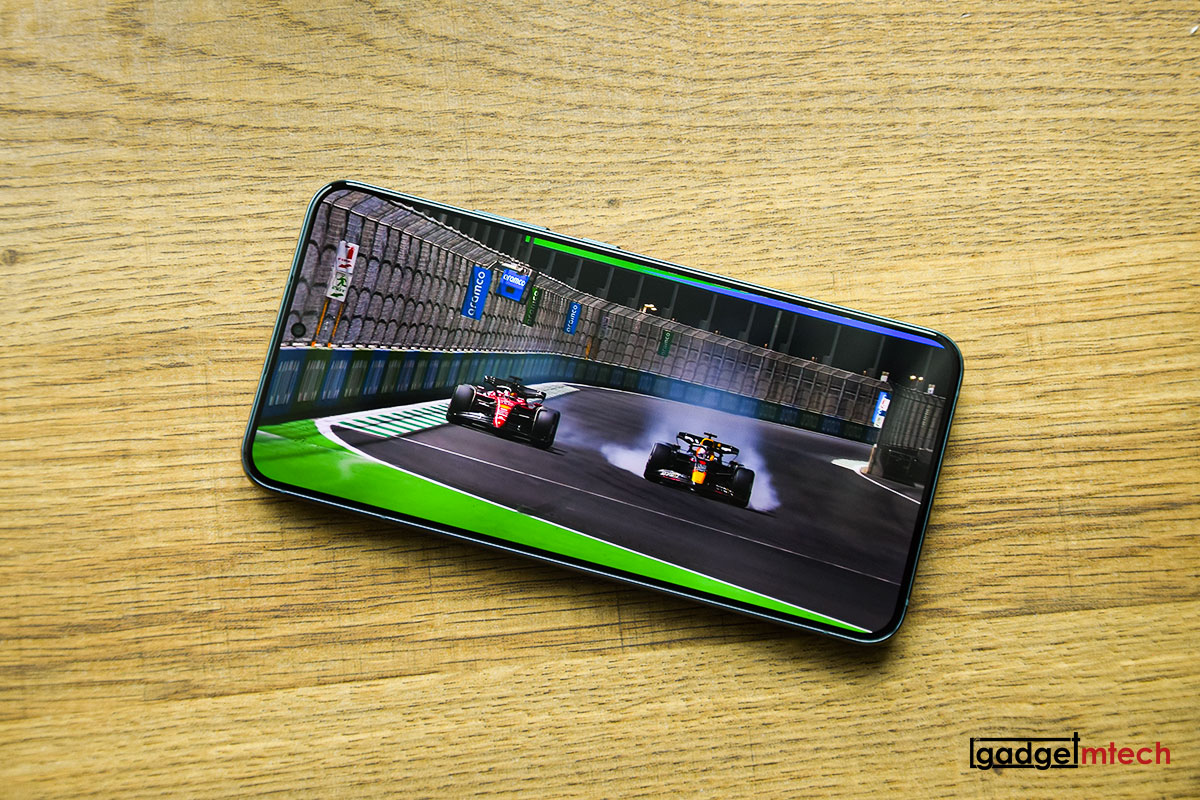
The Galaxy S22+ sports a 6.6-inch Full HD+ Dynamic AMOLED 2X display with an adaptive 120Hz refresh rate. It still doesn’t have an LTPO panel, hence its refresh rate can only go down to 48Hz. Initially, Samsung mentioned that the refresh rate can actually go all the way down to 10Hz but changed afterward, you can read the article by Tom’s Guide here explaining everything.
The screen still has the top-class quality that remains to be the benchmark in the smartphone industry. This is the phone you can get right now for the best viewing experience.
Snapdragon Processor
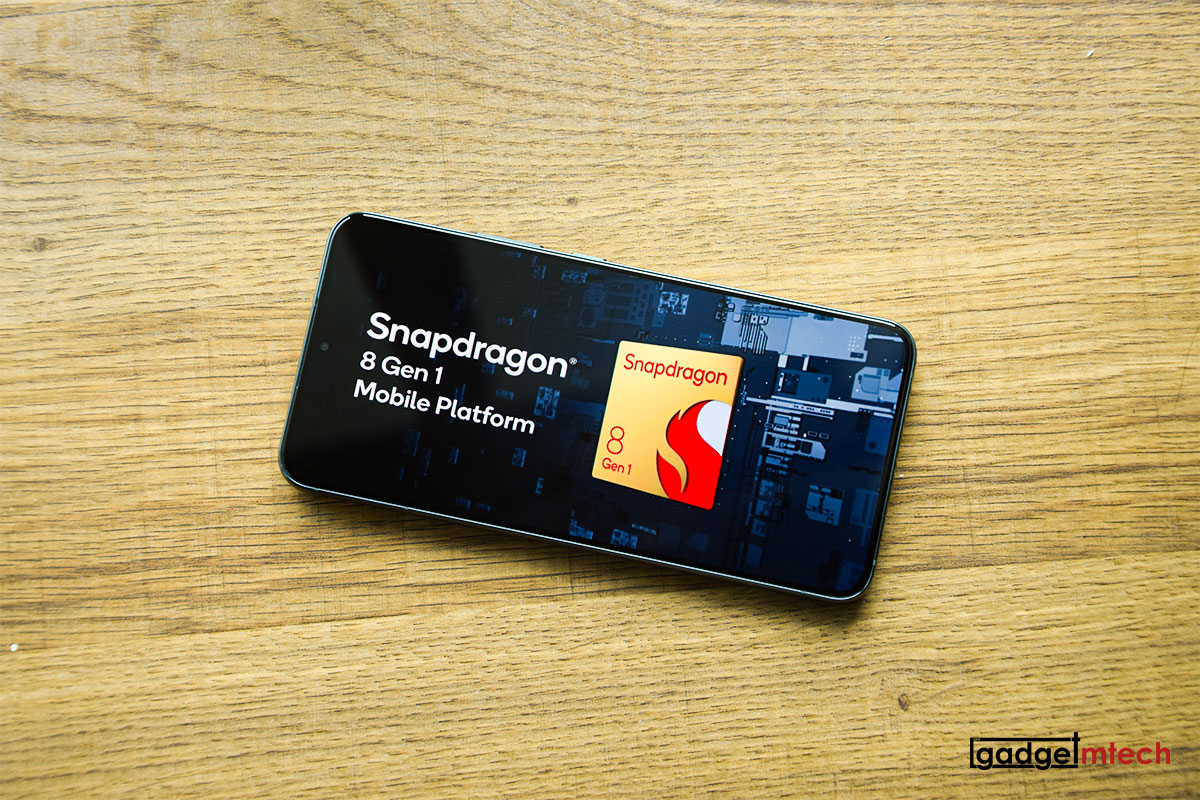
Just like the Galaxy S22 Ultra, the Galaxy S22+ is also powered by a Qualcomm Snapdragon 8 Gen 1 processor with 8GB RAM and up to 256GB UFS 3.1 storage. It performs well as expected but also gets hot easily since the Snapdragon 8 Gen 1 processor tends to run hot under heavy load. Unlike the S22 Ultra, the S22+ is a smaller phone, which also means the phone doesn’t cool down that well. Hence, there might be a thermal throttle issue with this phone.
One UI 4.1
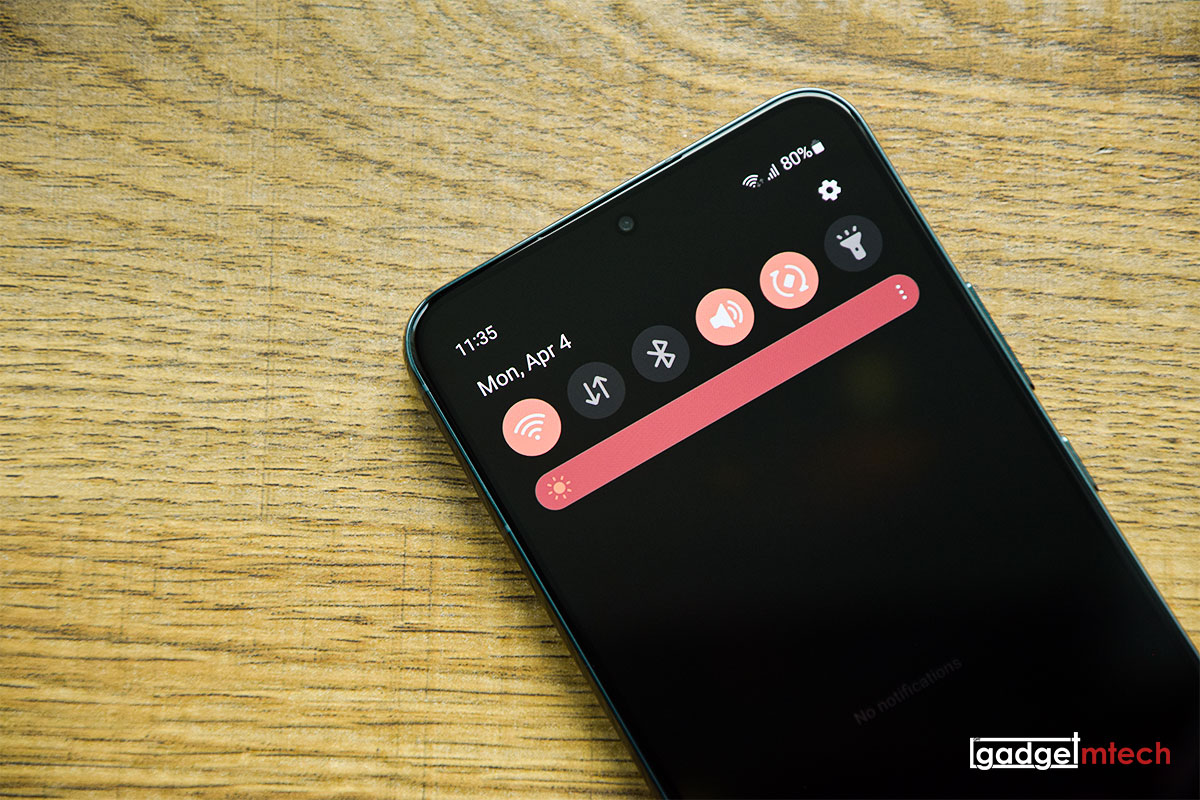
The Samsung Galaxy S22+ runs on One UI 4.1 based on Android 12 with the same user experience as the S22 Ultra, minus the S Pen experience. You now get to turn on/off the camera access and microphone access instantly via quick settings toggles. Furthermore, it will also show a green indicator on the top right of the screen if the app is using the camera or microphone. It also comes with video call effects that let you turn on virtual background, auto framing, and change the mic mode when you are in the middle of a video call.
Triple-camera Setup
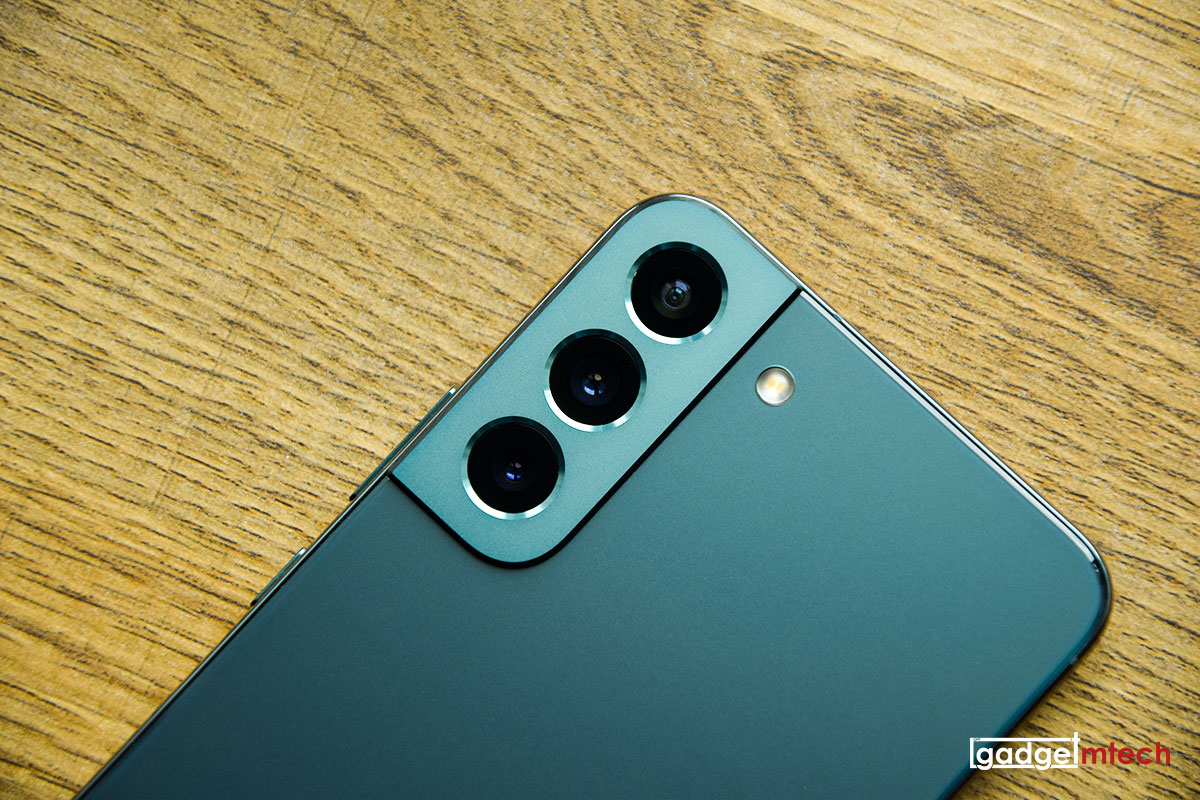
The Galaxy S22+ still packs a triple-camera setup, but Samsung took a different approach for this year’s model. The phone has a 12MP ultra-wide camera, a 50MP main camera with OIS, and a 10MP 3x telephoto camera with OIS. Yup, the main camera is now a 50MP unit, which is based on a Samsung ISOCELL GN5 (S5KGN5) sensor. The 10MP 3x telephoto camera replaces last year’s 64MP telephoto camera, which should provide better image quality since last year’s model used a hybrid optical zoom.
Image quality really improves a lot for this year’s model. The 50MP main camera shoots 12.5MP images by default, this is because it combines four pixels into one. The colors between the ultra-wide cam, main cam, and telephoto cam are quite consistent. Images appear to have a great dynamic range, great detail, and great colors.
4,500mAh Battery
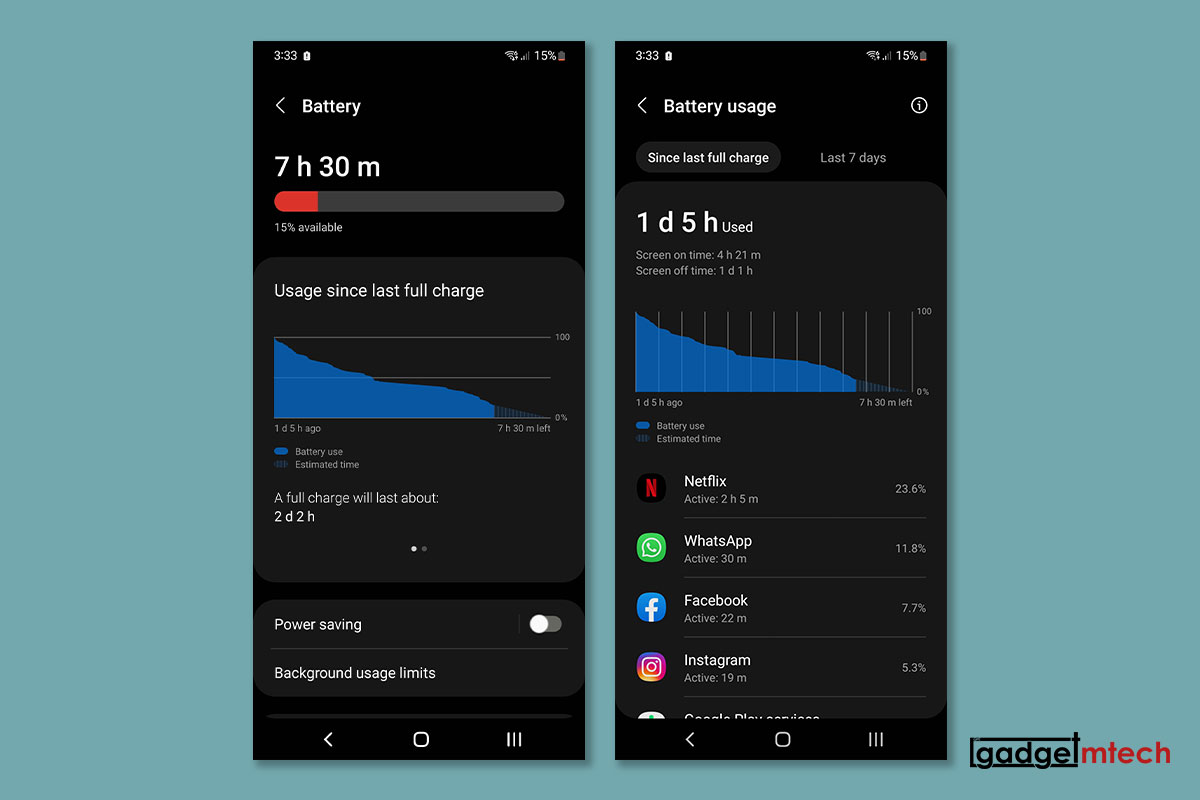
The Samsung Galaxy S22+ has a 4,500mAh battery, which is smaller than its predecessor (4,800mAh). In terms of battery life, the phone can last through a day with 4.5 hours of screen-on-time, that’s pretty much the same as last year’s model. Like the S22 Ultra, it also supports 45W Super Fast Charging 2.0, and the charging speed is more of the same.
Final Words
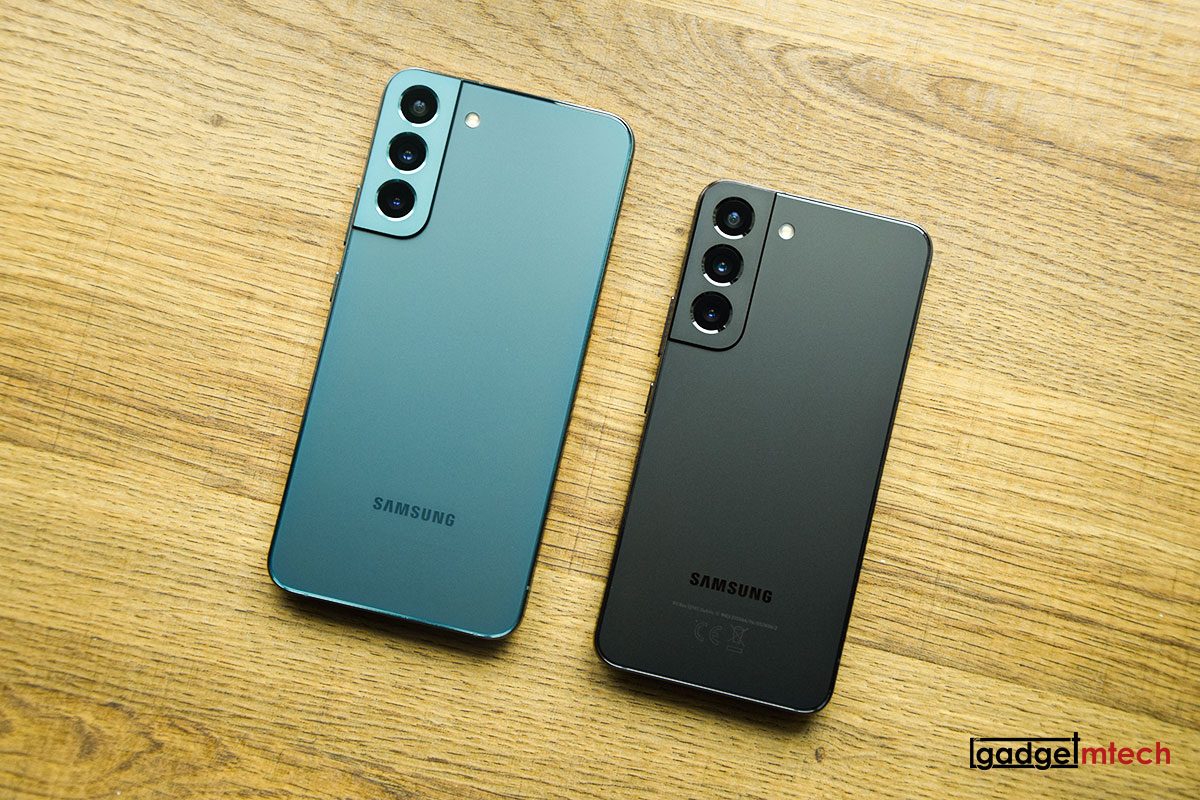
The Samsung Galaxy S22+ is available in 8GB+128GB and 8GB+256GB variants, retailing at RM4,099 and RM4,299, respectively. It is an all-rounder phone that still shares some features with the S22 Ultra, minus the LTPO screen, a 100x zoom camera, and the S Pen support. It has the same flagship performance, though the cooling performance is less impressive. Samsung has also changed the triple-camera setup, which takes more impressive photos. If you are looking for an Android flagship phone, Samsung is actually now the default Android device.
Buy Here
Yay
- Impressive build
- Top-class display
- Great cameras
Nay
- Unimpressive thermal management
- Battery capacity is smaller than its predecessor

